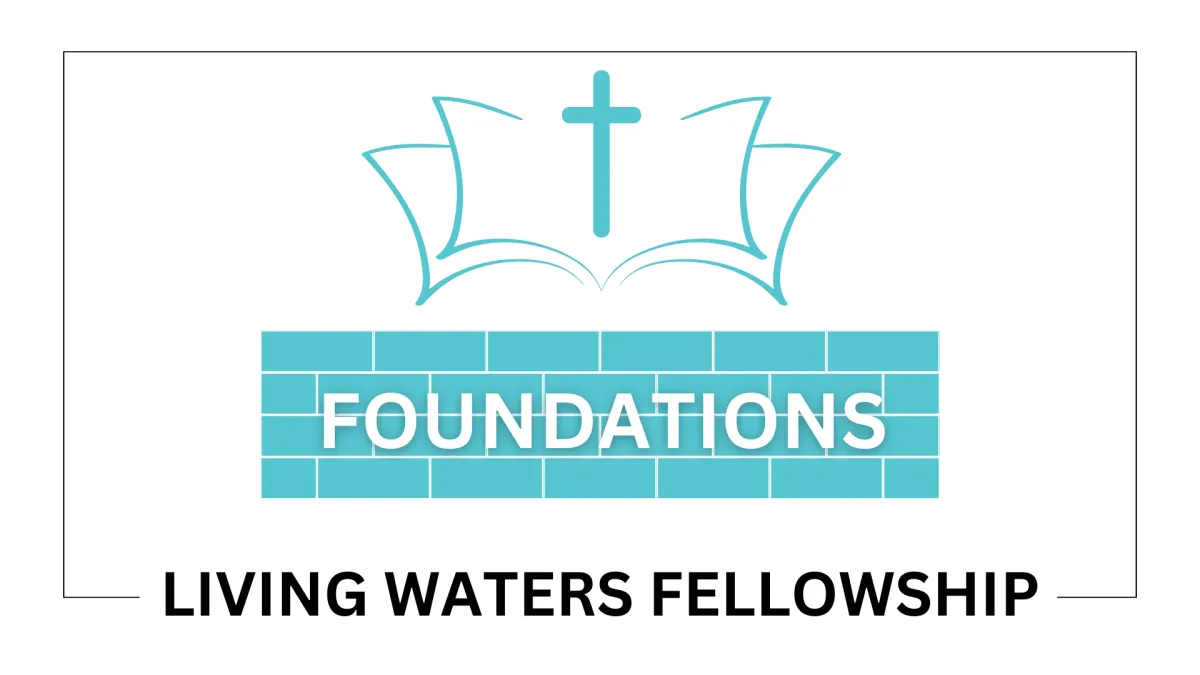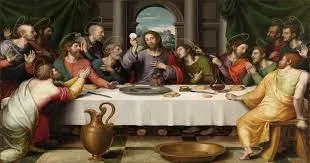I. Introduction to Christian Faith
i. Overview of the statement of faith
ii. What is biblical faith?
iii. The importance of faith in the Christian life
II. The Authority of the Bible
i. The inspiration and inerrancy of Scripture
ii. The role of the Bible in Christian faith and practice
iii. Principles of biblical interpretation
III. The Tri-unity of the Godhead
i. The nature of God as three-in-one
ii. The Father, Son, and Holy Spirit in Scripture
iii. Implications of the Trinity for faith and practice
IV. Creation, Fall, and Redemption
i. The biblical account of creation, fall, and redemption
ii. The sinfulness of humanity and our need for a savior
iii. The work of Christ on the cross and our salvation
V. The Person and Work of Jesus Christ
i. The deity and humanity of Christ
ii. The virgin birth and the life of Christ
iii. The death, burial, and resurrection of Christ
VI. The Gospel of the Grace of God
i. The message of the gospel
ii. The importance of the death, burial, and resurrection
iii. The implications of the gospel for our lives
VII. The Salvation of Sinners
VIII. The Second Coming of Christ
i. Christ's bodily ascension and heavenly enthronement
ii. The second coming and the resurrection of the dead
iii. The implications of the second coming of Christ
X. Pursuing Personal Holiness
i. The importance of personal holiness
ii. The role of discipline and self-control
iii. Sexual immorality and the honor of marriage
i. The nature of salvation
ii. The role of faith in salvation
iii. The assurance of salvation
VII. The Salvation of Sinners
i. The nature of salvation
ii. The role of faith in salvation
iii. The assurance of salvation
IX. Baptism and the Holy Spirit
i. The importance of water baptism by immersion
ii. The baptism of the Holy Spirit and tongues
iii. The gifts of the Spirit and their role in the church
XI. Divine Healing and the Lord's Supper
i. The nature of divine healing
ii. The prayer of faith
iii. The importance of the Lord's Supper for believers
XII. Eternal Life and Eternal Punishment
i. The reality of eternal life for believers
ii. The reality of eternal punishment for unbelievers
iii. The implications of eternal life and eternal punishment for Christian faith and practice




XI. Divine Healing and the Lord's Supper
12. The healing of the body by Divine power, or Divine healing in its many aspects as practiced by the early church. (Acts 4:30, 1 Corinthians 12:9, James 5:14, Matthew 8:17, Mark 16:18).
13. The Lord’s Memorial, commonly call Supper, for believers. (1 Corinthians 11:23-32).
Living Waters Fellowship FCA Statement of Faith

i. Does the Bible Teach Divine Healing?
The Bible does teach about divine healing. There are many passages in the Bible that support this teaching.
Divine healing involves a supernatural act which resolves a physical, emotional or spiritual problem. In a Christian context, the supernatural element is God, through the agency of the Holy Spirit, in the name of Jesus. Approximately one fifth of the Gospel narrative is devoted to Jesus’ healing ministry.
One of the most significant passages on divine healing is found in James 5:13-16. In this passage, James instructs believers who are suffering to pray and have faith in God for their healing. He also encourages them to confess their sins to one another and to pray for each other, so that they may be healed.
Another passage that supports divine healing is found in Mark 16:17-18, where Jesus promises that believers will lay hands on the sick and they will recover. This passage shows that healing is a sign of the power of God at work in the lives of believers.
In Matthew 8:16-17, we see Jesus healing many who were sick and demon-possessed. This passage teaches that healing is part of the ministry of Jesus and that he has the power to heal all who come to him.
In Isaiah 53:5, it is prophesied that the suffering servant would be wounded for our transgressions and by his stripes we are healed. This passage shows that the healing of our physical bodies is part of the atonement that Jesus provided on the cross.
Overall, the Bible teaches that divine healing is available to those who have faith in God and who believe in the power of prayer. It is important for believers to seek God for healing and to trust in his goodness and love for them.
Christ's Example and His Command:
Jesus healed the sick during His earthly ministry, and He also commanded His followers to do the same.
Jesus' healing ministry:
Matthew 4:23: "And he went throughout all Galilee, teaching in their synagogues and proclaiming the gospel of the kingdom and healing every disease and every affliction among the people."
Matthew 9:35: "And Jesus went throughout all the cities and villages, teaching in their synagogues and proclaiming the gospel of the kingdom and healing every disease and every affliction."
Acts 10:38: "God anointed Jesus of Nazareth with the Holy Spirit and with power. He went about doing good and healing all who were oppressed by the devil, for God was with him."
Jesus' commission to His disciples:
Matthew 10:7-8: "And proclaim as you go, saying, ‘The kingdom of heaven is at hand.’ Heal the sick, raise the dead, cleanse lepers, cast out demons. You received without paying; give without pay."
Mark 16:17-18: "And these signs will accompany those who believe: in my name they will cast out demons; they will speak in new tongues; they will pick up serpents with their hands; and if they drink any deadly poison, it will not hurt them; they will lay their hands on the sick, and they will recover."
The healing ministry of the apostles:
Acts 3:6-8: "But Peter said, “I have no silver and gold, but what I do have I give to you. In the name of Jesus Christ of Nazareth, rise up and walk!” And he took him by the right hand and raised him up, and immediately his feet and ankles were made strong. And leaping up, he stood and began to walk, and entered the temple with them, walking and leaping and praising God."
Acts 5:15-16: "So they [the sick] would carry out the sick into the streets and lay them on cots and mats, that as Peter came by at least his shadow might fall on some of them. The people also gathered from the towns around Jerusalem, bringing the sick and those afflicted with unclean spirits, and they were all healed."

ii. The Prayer of Faith
James 5:14-15
Is anyone among you sick? Let them call the elders of the church to pray over them and anoint them with oil in the name of the Lord. 15 And the prayer offered in faith will make the sick person well; the Lord will raise them up. If they have sinned, they will be forgiven.
The Bible teaches that faith is a necessary component for divine healing. Throughout the Gospels, Jesus healed many people and often emphasized the importance of faith. In Mark 5:34, after healing a woman with a hemorrhage, Jesus says, “Daughter, your faith has healed you. Go in peace and be freed from your suffering.” Similarly, in Matthew 9:29, Jesus tells two blind men, “According to your faith let it be done to you.”
The Bible also teaches that faith is a gift from God. In Mark 9:23-24, Jesus said, "All things are possible for one who believes," to which a man replied, "I believe; help my unbelief!" This indicates that even our faith comes from God and that we may need His help to strengthen our faith.
As we saw in Section I, James 5:15-16 teaches that the prayer of faith is powerful in bringing healing: “And the prayer offered in faith will make the sick person well; the Lord will raise them up. If they have sinned, they will be forgiven. Therefore confess your sins to each other and pray for each other so that you may be healed. The prayer of a righteous person is powerful and effective.”
Romans 10:17, says, "So faith comes from hearing, and hearing through the word of God." This indicates that our faith can be strengthened through hearing and studying the Word of God.
Faith is not just believing that God can heal, but it also involves trusting in His goodness and wisdom, even if the healing does not occur in the way we expect. This is illustrated in the story of the Apostle Paul, who had a “thorn in the flesh” that he asked God to remove. In 2 Corinthians 12:9-10, God responds to Paul’s prayer by saying, “My grace is sufficient for you, for my power is made perfect in weakness.” Paul then responds, “That is why, for Christ’s sake, I delight in weaknesses, in insults, in hardships, in persecutions, in difficulties. For when I am weak, then I am strong.”
The Bible teaches that faith is a gift from God and a necessary component for divine healing. Our faith can be strengthened through studying and hearing the Word of God, but ultimately, it is God who gives us the faith we need to believe for healing.
It also involves trusting in God’s wisdom and goodness, even if healing does not occur in the way we expect.

iii. The Importance of the Lord's Supper for Believers
The Lord's Supper was instituted by Jesus to commemorate his death, symbolize the New Covenant, to provide fellowship, and to anticipate the Messiah's return. It reminds us of the life and work of Jesus, and it marks us as people of his new covenant.
The Lord's Supper, also known as Communion, is a significant in the life of believers. It was instituted by Jesus Himself during the Last Supper, as recorded in the Gospels of Matthew, Mark, and Luke. The Lord commanded believers to participate in the Lord's Supper as it serves as a reminder of Christ's sacrifice on the cross and His atonement for our sins, and it is an opportunity for believers to reflect on their faith and renew their commitment to Christ.
In addition to its spiritual significance, the Lord's Supper is also connected to divine healing. In 1 Corinthians 11:23-30, the apostle Paul provides instructions for the celebration of the Lord's Supper and emphasizes the importance of taking it in a worthy manner. He writes, "Whoever eats the bread or drinks the cup of the Lord in an unworthy manner will be guilty of sinning against the body and blood of the Lord. Everyone ought to examine themselves before they eat of the bread and drink from the cup" (1 Corinthians 11:27-28, NIV).
This call to self-examination is important because it acknowledges the connection between physical and spiritual health. In verse 30, Paul states that some of the Corinthians had become weak and sick, and some had even died, because they had not properly discerned the Lord's body. This suggests that there is a relationship between the state of our physical bodies and the state of our spiritual lives.
Therefore, participating in the Lord's Supper with faith and reverence can have a positive effect on our physical health. It is a reminder that Christ's sacrifice on the cross not only provided for our spiritual salvation but also for our physical healing. Isaiah 53:5 says, "But he was pierced for our transgressions, he was crushed for our iniquities; the punishment that brought us peace was on him, and by his wounds we are healed" (NIV).
Furthermore, the act of taking communion together as a community of believers can foster a sense of unity and connectedness. In 1 Corinthians 10:16-17, Paul writes, "Is not the cup of thanksgiving for which we give thanks a participation in the blood of Christ? And is not the bread that we break a participation in the body of Christ? Because there is one loaf, we, who are many, are one body, for we all share the one loaf" (NIV).
The Lord's Supper is an important part of the life of believers, serving as a reminder of Christ's sacrifice on the cross and a call to self-examination. It is also connected to divine healing, as we participate in faith and reverence, acknowledging the relationship between physical and spiritual health. Taking communion together as a community of believers also fosters a sense of unity and connectedness.